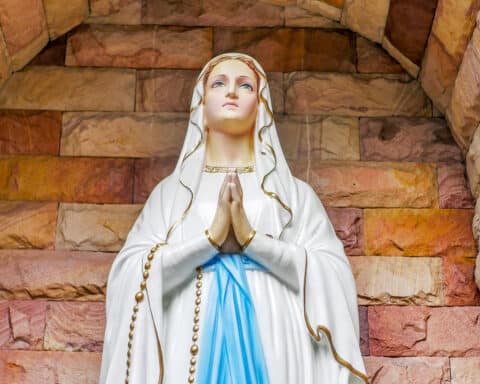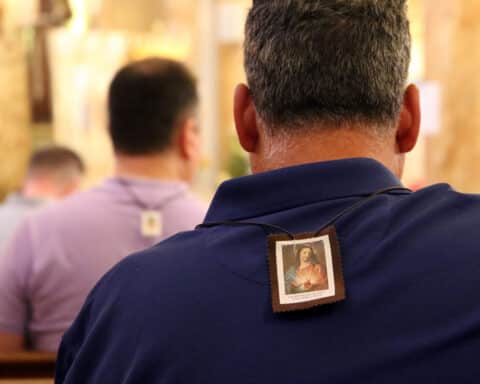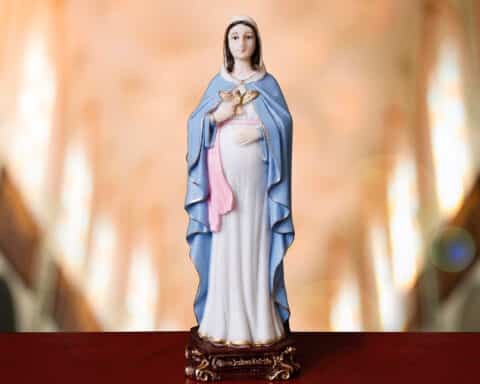
In this most beloved canticle, found in the Gospel of Luke, we see the transition that has happened since the Angel Gabriel first announced the role that Mary, should she accept, would play in salvation history. Her questioning at the Annunciation (“How can this be?”) becomes by the time of the Visitation a humble proclamation of mission to Elizabeth and, in effect, to the world. It is both a personal song of praise and a calling to humility and holiness for each one of us.
In a 2006 general audience, Pope Benedict spoke to this calling. In each of the seven divine acts that Mary proclaims in the first chapter of Luke, God “takes the part of the lowly.”
| The Magnificat |
|---|
|
‘My soul proclaims the greatness of the Lord; my spirit rejoices in God my Savior, for he has looked with favor on his lowly servant. From this day all generations will call me blessed: the Almighty has done great things for me, and holy is his Name. He has mercy on those who fear him in every generation. He has shown the strength of his arm, he has scattered the proud in their conceit. He has cast down the mighty from their thrones, and has lifted up the lowly. He has filled the hungry with good things, and the rich he has sent away empty. He has come to the help of his servant Israel for he has remembered his promise of mercy, the promise he made to our fathers, to Abraham and his children for ever.'”
|
“His plan is one that is often hidden beneath the opaque context of human events that see ‘the proud, the mighty and the rich’ triumph,” Pope Benedict said.
“Yet,” the pope continues, “his secret strength is destined in the end to be revealed, to show who God’s true favourites are: ‘Those who fear him,’ faithful to his words: ‘those of low degree,’ ‘the hungry,’ ‘his servant Israel,’ in other words, the community of the People of God who, like Mary, consist of people who are ‘poor,’ pure and simple of heart. It is that ‘little flock’ which is told not to fear, for the Lord has been pleased to give it his Kingdom (cf. Lk 12:32). And this canticle invites us to join the tiny flock and the true members of the People of God in purity and simplicity of heart, in God’s love.”
The Magnificat, then, is not only a proclamation of Mary’s mission, it is a proclamation of our own, given to us by our Mother, and inspired by the divine life growing within her. May we strive to live up to it.
**********************
On a personal note, this is my final column in this space for a few months as I take some time to care for my newborn baby girl. I am very pleased to leave you in the hands of the talented members of Our Sunday Visitor’s staff, who will be welcoming you to each issue of the newspaper in my stead. Blessings upon your summer.
Gretchen R. Crowe is editorial director for periodicals at Our Sunday Visitor. Follow her on Twitter @GretchenOSV.





